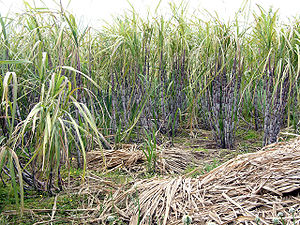
- Image via Wikipedia
The week has not started off on a good note for biofuels. As the European biofuel industry prepares to meet in Amsterdam in mid-March, a new paper published in the Proceedings of the National Academy of Sciences (PNAS) warns that “business-as-usual agricultural expansion to meet biofuel production targets for 2020 will take a heavy toll on Brazil’s Amazon rainforest in coming years, undermining the potential emissions savings of transitioning from fossil fuels to biofuelsâ€, wrote Mongabay. Efforts to promote high-yielding oil crops such as oil palm combined with cattle ranching are the main factors driving Amazon deforestation, it said.
Meanwhile, UK environmentalists have added their voices to the chorus of protest against the construction of a biofuel plant in Avonmouth, near Bristol. According to a BBC report, Friends of the Earth said “demand for the main source of oil – tropical palm trees – outstripped supplyâ€, so the plant is not sustainable. City planners will make a decision on the scheme on February 24th. For further information on the environmental problems associated with palm oil, go here.
Elsewhere, ActionAid, a UK-based charity, today released a report warning that up to 100 million more people could go hungry if member states agree to increase the consumption of biofuels in line with EU targets. Maize, wheat, sugar cane, palm oil, soy and rapeseed are the main sources of biofuel and ActionAid says rising demand has put them into competition with those crops grown for food, driving prices up and increasing global hunger. Despite this, the EU in 2008 committed to obtaining 10% of transport fuels from renewable sources by 2020 and will do so with industrial biofuels, increasing consumption four times current levels. As much as two-thirds are likely to be imported, the majority from developing countriesâ€, says the organization.

![Reblog this post [with Zemanta]](https://img.zemanta.com/reblog_e.png?x-id=076541ba-c6b9-48d2-ad2b-148ba9f34129)




